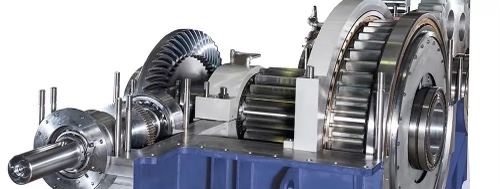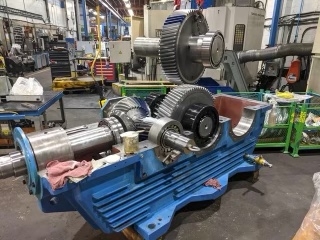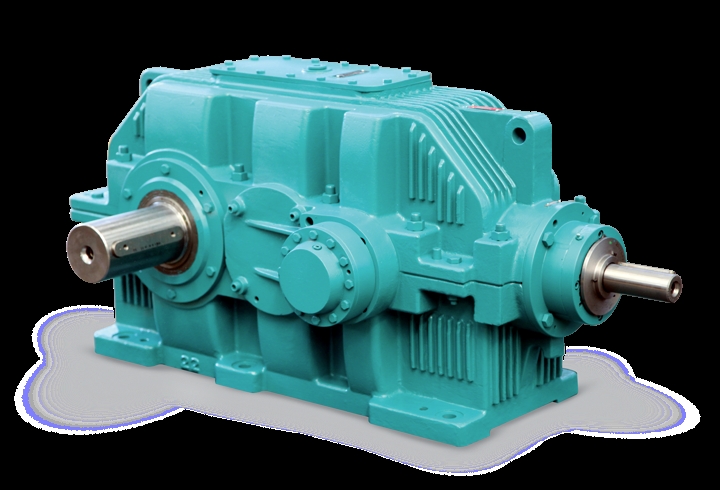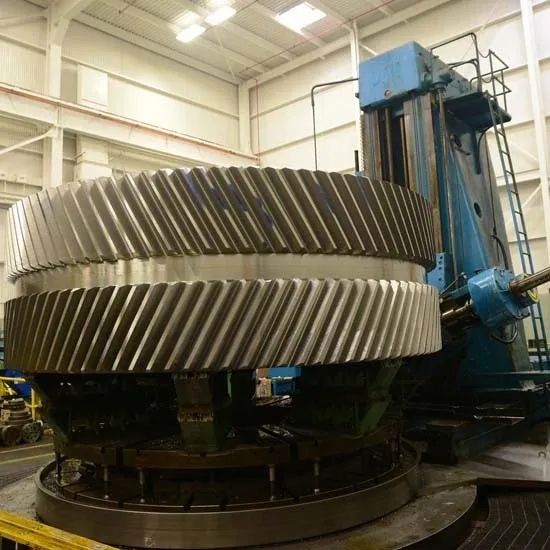

Hydraulic fluid in a press brake should be replaced at regular intervals to ensure optimal performance and prevent potential damage to the system. It is generally recommended to replace the hydraulic fluid every 1,000 to 1,500 operating hours, but this can vary depending on the specific usage and conditions of the press brake.
Signs that indicate the hydraulic fluid in a press brake needs to be replaced include decreased performance, unusual noises, leaks, overheating, and visible contamination in the fluid. If any of these symptoms are observed, it is important to promptly replace the hydraulic fluid to prevent further damage to the press brake.
Tompkins County poised for manufacturing boom with Menlo Micro and Micron investments “Menlo Micro announced a significant investment of over $50 million to establish a fabrication facility in Lansing, near Ithaca, New York, signaling a major boost for the local manufacturing workforce.” Read more Plug Power wins $75 million grant from DOE “The Latham hydrogen … NYS Manufacturing and Tech News 3.11.24 Read More »
Posted by on 2024-03-15
We continue our blog series on the great work of our New York State assets in Advanced Materials across the state. This week, we feature the work of Rensselaer Polytechnic Institute (RPI) in Troy, NY, and their work on next generation building technology with an aim to decarbonize the built environment. This includes working with … Advanced Materials Strengths and Assets in NYS: Focus on Rensselaer Polytechnic Institute Read More »
Posted by on 2024-02-28
Embark on an enlightening exploration of New York’s economic transformation with special guest Alyson Slack from MRB Group, as we uncover the past and present of the state’s manufacturing sector. Together with FuzeHub’s Steve Melito we chart the course from a robust production history to a burgeoning service-oriented economy, all while acknowledging manufacturing’s lasting contributions … Podcast: Building Better Economies Read More »
Posted by on 2024-03-18
New $25M beauty manufacturing and innovation hub for Black- and women-owned businesses coming to Brooklyn Navy Yard “The Brooklyn Navy Yard is set to be home to a new $25 million state-of-the-art manufacturing, incubator, and accelerator facility focused on helping Black- and women-owned health and beauty businesses launch and grow in New York City.” Read … NYS Manufacturing and Tech News 3.4.24 Read More »
Posted by on 2024-03-08
In our third feature in our New York State Assets blog series on Advanced Materials, we focus on the groundbreaking work at the University at Buffalo. Their Department of Materials Design and Innovation focuses on accelerating lab discoveries into practical engineering applications. They are pioneering new approaches in material science education and research, leveraging technologies … Advanced Materials Strengths and Assets in NYS: Focus on University at Buffalo Read More »
Posted by on 2024-03-06
The type of hydraulic fluid recommended for use in a press brake typically depends on the manufacturer's specifications. It is important to use a high-quality hydraulic fluid that meets the required viscosity and performance standards to ensure smooth operation and longevity of the press brake.

It is generally recommended to flush the hydraulic system before replacing the hydraulic fluid in a press brake. Flushing helps remove any contaminants or old fluid that may be present in the system, ensuring that the new hydraulic fluid can perform effectively and prevent any potential issues.
Not replacing the hydraulic fluid in a press brake regularly can lead to a range of consequences, including decreased performance, increased wear and tear on components, overheating, leaks, and ultimately system failure. Regular maintenance, including hydraulic fluid replacement, is essential to ensure the longevity and efficiency of a press brake.

When replacing the hydraulic fluid in a press brake, specific maintenance procedures should be followed to ensure proper operation. This may include draining the old fluid, flushing the system, refilling with the recommended hydraulic fluid, and checking for any leaks or issues before resuming operation of the press brake.
To ensure that the hydraulic fluid level is correct after replacement in a press brake, it is important to follow the manufacturer's guidelines for checking and maintaining the fluid level. This may involve checking the sight glass or dipstick, monitoring for any leaks, and adjusting the fluid level as needed to ensure optimal performance of the press brake. Regularly checking and maintaining the hydraulic fluid level is essential for the proper functioning of a press brake.

The company specializes in providing comprehensive repair services for industrial boilers, catering to a wide range of complex issues such as tube leaks, refractory repairs, burner adjustments, and pressure vessel maintenance. Our team of highly skilled technicians is equipped to handle various types of boilers, including fire-tube, water-tube, and electric boilers. With expertise in combustion analysis, heat exchanger cleaning, and efficiency optimization, our services ensure optimal performance and longevity for industrial boiler systems. Additionally, we offer emergency repair services to minimize downtime and ensure uninterrupted operation for industrial facilities.
When handling repairs for industrial vacuum pumps, the technician must first diagnose the issue by conducting tests and inspections to identify the root cause of the problem. This may involve checking for leaks, worn-out parts, or malfunctioning components. Once the issue is identified, the technician will proceed with repairing or replacing the faulty parts, such as seals, gaskets, valves, or motors. It is crucial to follow manufacturer guidelines and specifications to ensure proper repair and maintenance of the vacuum pump. Additionally, regular maintenance schedules should be established to prevent future breakdowns and optimize the performance of the industrial vacuum pump. Proper documentation of repairs and maintenance activities is also essential for tracking the pump's history and ensuring compliance with industry standards.
Industrial shredder repair services are available for a wide range of specific models, including but not limited to Vecoplan, Allegheny, Shred-Tech, and SSI shredders. These services encompass the repair and maintenance of various components such as blades, motors, belts, and control panels. Skilled technicians with expertise in industrial shredder technology can diagnose issues, perform necessary repairs, and ensure optimal performance of the equipment. Additionally, they may offer preventive maintenance plans to prolong the lifespan of the shredders and minimize downtime. By utilizing specialized tools and knowledge of the intricacies of different shredder models, these professionals can effectively address any issues that may arise.
In order to ensure quality in equipment refurbishment, the refurbishment team follows a strict set of procedures and protocols. This includes conducting thorough inspections, testing all components, replacing any worn or damaged parts, calibrating equipment to meet manufacturer specifications, and performing quality control checks throughout the refurbishment process. Additionally, the team utilizes advanced diagnostic tools, adheres to industry standards and regulations, and undergoes continuous training to stay updated on the latest refurbishment techniques. By implementing these measures, the team can guarantee that all refurbished equipment meets high-quality standards and functions properly for the end user.
The company specializes in repairing a wide range of industrial boilers, including but not limited to models such as Cleaver-Brooks, Fulton, Hurst, and Johnston. Our team of experienced technicians is well-versed in handling various types of boiler systems, from firetube to watertube designs. We have the expertise to troubleshoot and fix issues related to combustion, controls, pumps, valves, and other components that may arise in these specific models. With a focus on efficiency and safety, our repair services ensure that your industrial boiler operates at optimal performance levels.
When it comes to handling repairs for industrial heat transfer systems, the process typically involves diagnosing the issue, sourcing replacement parts, conducting maintenance tasks, and testing the system to ensure it is functioning properly. Maintenance tasks may include cleaning heat exchangers, checking for leaks, inspecting valves and pumps, and calibrating temperature sensors. Technicians may also need to troubleshoot electrical components, such as control panels and wiring. In some cases, repairs may involve welding or soldering to fix damaged components. It is important for technicians to follow safety protocols and manufacturer guidelines when performing repairs to ensure the system operates efficiently and safely. Regular maintenance and prompt repairs are essential to prevent costly downtime and extend the lifespan of industrial heat transfer systems.